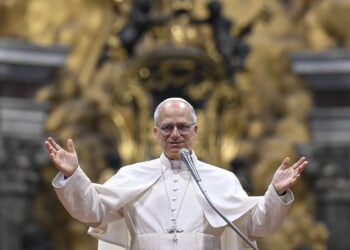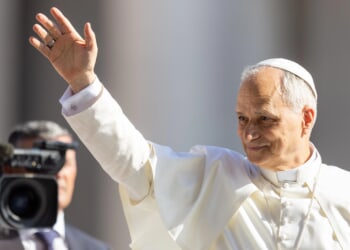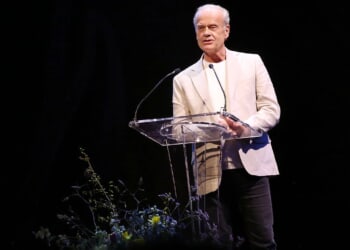Vatican City, May 15, 2025 /
16:03 pm
The pontificate of Pope Leo XIV can bring new impetus to the Church’s evangelical mission in the world today, theologian and philosopher George Weigel said this week.
Weigel held a public lecture on Wednesday at Rome’s Pontifical University of St. Thomas Aquinas — also known as the Angelicum — on the “10 Markers of a Church ‘Permanently in Mission,’” which highlighted criteria including the need for friendship with Christ, acceptance of the authority of divine revelation, the sacraments, the call to constant conversion of life, and a “liturgically-centred form of Catholic life.”
During the lecture, the American theologian expressed his hope that “the authentic Catholic reform” begun by Pope Leo XIII at the end of the 19th century will be “further accelerated” by Pope Leo XIV, whose papal inaugural Mass will take place on Sunday, May 18.
“Pope Leo XIV struck that missionary note in his presentation of himself to the Church and the world last Thursday evening when he called the Church to be faithful to Jesus Christ without fear,” Weigel said, reflecting on the new pontiff’s first “urbi et orbi” blessing.
According to Weigel, Pope Leo XIV is an “absolutely pivotal figure” who has the ability, through his own pontificate, to carry out Pope Leo XIII’s vision of the Church as a “great institutional promoter and defender of basic human rights” in society.
In light of Pope Leo XIII’s encyclical letter Rerum Novarum — a key Vatican document outlining the foundations of Catholic social doctrine released on May 15, 1891 — Weigel propounded that “it is only Christ” who, through the Church, can be an intentional force of good and humanize the world amid suffering.
“The Church of the ‘new evangelization’ recognizes that in offering everyone the profoundly countercultural possibility of friendship with the Lord Jesus, it offers the postmodern world something postmodernity desperately needs — an encounter with the divine mercy,” he said.
“The Gospel liberates postmodern humanity from its cynical nihilism, its skepticism, and its burden of guilt form of a tacit, if not inarticulate, understanding of the awfulness that humanity visited upon itself throughout the 20th century,” he added.
The “Leonine revolution” that began in the Church more than 100 years ago should spur Catholics to go deeper into how to “engage the world in order to convert the world” as missionaries faithful to the Gospel, Weigel said on Wednesday.
“A Church permanently on mission seeks to be a culture-forming [and] counterculture for the world, its healing, and its conversion,” he said, pointing out the ineffectiveness of a “church of maybe” that is timid, lukewarm, and lacks conviction.


















